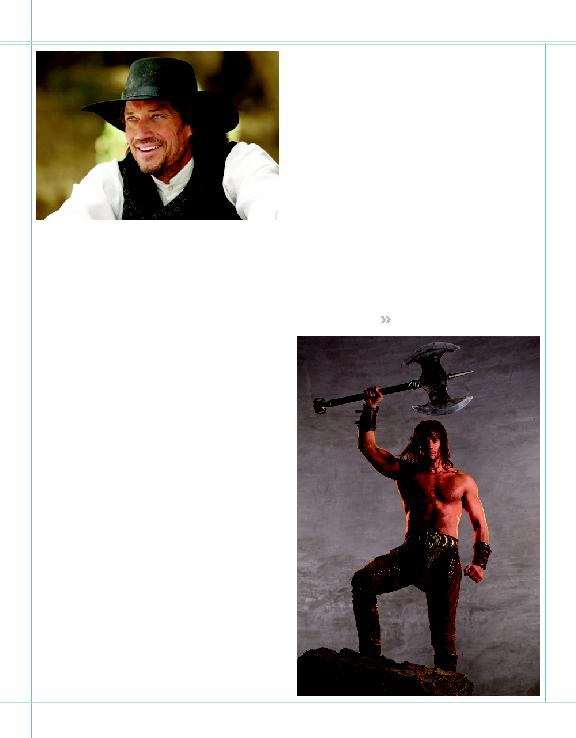
left shoulder. I had numbness down my arm, and a cold, tingling
sensation in my left hand. The pain was ridiculous. When we
finished shooting, I flew back to L.A. to start another movie for
Universal, but first I made a trip to see my doctor. He found a lump
in my shoulder and wanted to do a biopsy on it. Before the biopsy
was set up, I went to see my chiropractor, who had never cracked
my neck, but on this day decided to do just that. That lump in my
shoulder turned out to be an aneurysm. That crack sent thousands
of clots into my left arm, and three of those clots went into my
brain. Two of those clots went to the balance system of my brain
and one went to my vision center. I had three strokes. I had to drop
out of the movie to go into physical rehab for the next four months
before returning to New Zealand to shoot season six of Hercules.
I went from a fourteen-hour day to a one-hour day, slowly building
my time on set over the next two years. It took me three full years
to recover.
do. My physical conditioning and age beforehand certainly helped.
I was the opposite of what usually puts you at risk for strokes,
which is obesity, smoking, high blood pressure, and diabetes. I
worked out; I ate healthy. The doctors said that after eight months,
whatever level of recovery I was at, well, that would be my life. At
eight months of recovery, I wasn't ready for that to be my life. I
turned to acupuncture, yoga, all kinds of Eastern medicine.
to tell my story--to motivate those who are going through similar
problems, and motivate them to push past the limitations doctors,
family members, and friends put on us during those recovery times.
I kept a positive attitude and I wanted to pass that on to others. My
wife gave me a mantra to repeat every day: Look in the mirror and
say, "I'm getting better; I am getting stronger."
What kept you going during that time?
in a wheelchair for the rest of my life, so I just kept pushing myself
with the physical therapy and going beyond what doctors wanted
from me.
staff weren't getting paid off to report what was going on. The only
thing that got out through Entertainment Tonight and the tabloids
was the aneurism. That's all that was let out. All my therapy and
everything were done at home, so I just wasn't out there. When I
returned to New Zealand for filming, I was in a bubble. I was very
protected by those around me.
love my work. If you don't love what you do, then make the change
and find something you love. That is a huge motivating factor for
recovery as well. Get rid of the negative parts of your life. That may
include people who really aren't your friends, hurtful "friendships"
you are still clinging to.